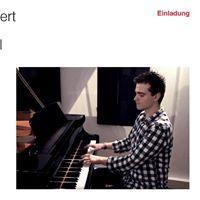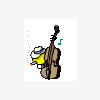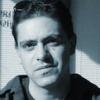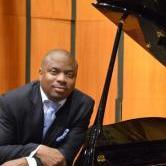Search the Community
Showing results for tags 'composition'.
-
Is it what drives the composition of every piece? Should it be what drives the composition of every piece? Is it like that with you? Is it like that with most composers? Or are there composers who do not mind if recognition were to never come and compose regardless?
- 10 replies
-
- composition
- recognition
-
(and 1 more)
Tagged with:
-
Electronic Music Composition Contest: Compose a piece in one of the following experimental genres: Acousmatic, Audio art, Electroacoustic, Glitch, Intelligent Dance Music, Microsound, Noise, Turntable art, or Video music. Maximum length: 10 minutes. Accepted file types: MP3 or MP4 only. $25 entry fee includes a one-year subscription to Musicworks magazine; $5 each additional entry (unlimited). First Prize: $500 cash, a composer profile in Musicworks magazine and on musicworks.ca AND your composition released on the Musicworks companion CD Second Prize: $200 cash AND a composer profile on musicworks.ca Third Prize: $100 cash AND a composer profile on musicworks.ca Also check out the “Sonic Geography” Writing Contest: Describe how sound shapes your experience in 500 words. Echoes in a Lisbon square, waterdrops from an Iceland glacier, birds in a Buenos Aires barrio, or the noise of your own neighbourhood—these are just some of the sound that have inspired contributors to our regular “Sonic Geography” column. The first-prize-winning essay will be published in our regular column space. Accepted file types: PDF only. 2014 Contest prize details, eligibility and assessment criteria, and entry forms can be found at: https://www.musicworks.ca/contest
-
- electronic music
- composition
- (and 8 more)
-
Hey guys :D I am new here and I have a question! What is the fastest way to write music? Do you write it with your hand and then copy it on the computer? Or do you instantly write it on a special programme on the computer? Or do you use tablets? I am kind of new here and I was wondering wether you could help me. (at the moment I use Finale, but it takes so long to enter note by note with your mouse) Any kind of help is appreciated! Thank you :D
- 15 replies
-
- write music
- fastest way
-
(and 5 more)
Tagged with:
-
Hello, I'm a beginning music composition student at Washington State University, and there's a question that has been increasingly interesting me: What defines a "good" piece? I've been fascinated with theory, partly because I'm interested in trying to determine this answer, but so far it has generally eluded me. Why, for example, are Bartok's string quartets valued over Schubert's? Or why is Rite of Spring preferred over Firebird? I'm currently trying to write a piece for clarinet, but I'm kind of stuck because I can't decide when something I write is "good" or not. Sometimes there are notions that some pieces narrowly miss greatness because they don't develop their ideas enough, but what determines if an idea has been adequately developed? What are the correct ways to "develop" an idea? When are you developing an idea, and when are you actually introducing a new idea? I feel like these are some basic elements of composition theory, but I don't have a very firm grasp of them. I'd love to hear any of your thoughts on the matter. Thanks!
-
General Information Bachelor of Music undergraduates from any Australian tertiary institution are invited to enter the inaugural Duo Entendre Composition Competition. Applicants will be required to submit a composition of up to 5 minutes duration for the instrumentation of horn and piano*. The work can be of any style providing that the score is legibly notated with computer software. Electronics and prepared piano can be utilised providing clear instructions are given. *Stuart & Sons 102 key Concert Grand - see Stuart and Sons website for specifications. Prize The winning composer will receive a $1000 prize. A concert program including the winning composition will be devised from the entered works. This free concert will take place on Sunday October 5, 2014 at 3pm in the Harold Lobb Concert Hall, Newcastle Conservatorium. The winner will be announced at this concert. Full details and entry form available from our website: http://www.duoentendre.com/competition.html
- 1 reply
-
- composition
- competition
-
(and 2 more)
Tagged with:
-
Two days ago I participated in a Photo Marathon in which we had 12 hours, 12 themes, and had to take 12 photos. It was a pretty exciting challenge. So the idea occurred to me that we might organize a "Composition Marathon" on YC. To do it, we would have to adapt the idea. So I am starting this thread whereby we can collectively brainstorm to refine the idea and eventually hold the marathon. Here are my own suggestions for the adaptation of the photo marathon idea to a "composition marathon". These ideas are suggested as a starting point. Feel free to suggest your improvements or modifications. 1) 12 hours: Since this will be an online event with a global audience of composers, I suggest that we change this to 24 hours in order to take into account the time differences between countries (which could mean that if we made it only 12 hours, several countries' composer's might happen to be asleep during most of those hours). We can agree on the starting time and announce it several days before, doing a countdown to the day and hour (with no details of "themes" announced yet) while asking everyone to register. 2) 12 themes: These could be adapted to mean restrictions on the pieces to be composed. These "restrictions" could mean any of the following (feel free to add your suggestions): a) Limited number of bars to compose in. We could, for example, specify 10-bar miniatures as one of the "themes", as Christian Perrotta did in a successful challenge some time ago. We could go even shorter and ask for 5-bar miniatures, for another of the "themes". b) Related to the above, we can specify the form of the pieces. Possible forms I would suggest would be: free form, Soliloquy, or sententia (Latin for sentence, a form I have originated and composed several sets of pieces in). c) We can supply different musical themes to compose pieces on. d) We can specify the key signatures of the pieces to be composed. e) We can specify the time signatures of the pieces to be composed. f) We can specify the instruments for which to compose pieces. 3) 12 photos/pieces: As regards the number (12) of themes or restrictions, we could once again adapt this to composition in one of the following ways: a) 12 variations on one theme b) 12 sententiae c) 12 soliloquies d) Any of the above restrictions (see No. 2, a-f) x 12 (i. e. 12 x 5-bar minatures, or 12 5-bar miniatures for different instruments, 12 pieces in 12 different provided themes, 12 sententiae/soliloquies/etc. for 12 different instruments, 12 5-bar miniatures in 12 different key signatures, 12 variations on a theme for 12 different instruments, etc). Waiting to hear your input and ideas on how this composition marathon can best be organized and held. It could become a yearly event and would serve to generate increased interest in composition, excitement for young and beginning composers, and challenge and motivate all of us to improve as composers.
- 7 replies
-
- composition
- marathon
-
(and 2 more)
Tagged with:
-
Where do you think does a personal style come from? What are the important factors that determine the emergence of an original personal style? Does it happen by itself, or does one consciously nurture and develop a personal style? Ideally speaking, would it be an unconscious or a conscious process/action? What about in practice?
- 20 replies
-
- composition
- style
-
(and 1 more)
Tagged with:
-
Hey all, Out of curiosity, how do you compose? What is your process? Do you sit down at the keyboard, or the computer, at the same time every day with a cup of coffee and work diligently until something good comes out of it? Or does inspiration strike when you least expect it, and then you rush for a piece of paper before you forget that brilliant idea? Do you start with chord progressions? Work phrase by phrase, one part at a time? Write the entire melody, and then go back and fill in the other parts? How do you work? (I work a bit every day, phrase by phrase, and part by part. Then go back and read through each part while playing the whole thing, and be sure that each part makes intuitive sense from a sight reading perspective, and adjust chords if it doesn't, add dynamics, accents, etc, let it sit for a few days to clear my head, and then come back with fresh ears for a last check. At that point I'm heartily sick of the piece, so I keep everyone's comments in mind for the NEXT piece, but don't usually do much post-feedback editing.)
- 18 replies
-
- process
- composition
-
(and 2 more)
Tagged with:
-
Here are some that I would like to share to start this thread: 1. "Shame on the blind men who took Beethoven for a deaf man!" Wilhelm von Lenz (1809 - 83) 2. "They want me to compose in a different way; I could, but I must not." Anton Bruckner (1824-96) 3. "This boy will cause us all to be forgotten." German composer Johann Adolf Hasse (1699-1783), about the 15-year old Mozart. My comments: Concerning the third quotation: What a prophetic thing to say! Concerning the second: Genius recognizes itself! Concerning the first: Talk about metaphoric blindness and deafness!
- 15 replies
-
- conductors
- performance
-
(and 3 more)
Tagged with:
-
Why do we avoid the augmented second between 6 and 7 in harmonic minor in voice leading? I always get called on this in my compositions, but I use that interval on purpose. It sounds so expressive and pulls so strongly to tonic, why avoid it? It's not like singers can't sing it now. Contemporary singers should find an augmented second very easy to sing. It isn't hard on any instrument. So why? Why do we avoid the augmented second in voice leading?
-
-
- composer competition
- parma
- (and 4 more)
-
With some insight into your compositional process if possible.
- 10 replies
-
- 2
-

-
- sketch
- composition
- (and 4 more)
-
Hi All, I have trouble with writing larger/longer pieces of music. I can come up with melodies or "riffs", but I'm not sure how to make a piece "coherent" and not simply a string of ideas, or a "song", or ABA form. To help me understand, I would like to start with a very simple and short example, prelude in C by Bach, BWv924 (see attached). Why is this piece "coherent"? What is the structure or form of this piece? Thanks for any help IMSLP222728-PMLP180599-Bach_Prelude_BWV924_Cmaj.pdf
- 9 replies
-
- composition
- coherence
-
(and 2 more)
Tagged with:
-
The Geneva International Music Competition (Concours de Genève) is organizing once again this year a Composition Prize : - Members of the Jury : Ivan Fedele (Chairman), Toshio Hosokawa, Magnus Lindberg, Philipope Manoury, Isabel Mundry - Subject of the Competition : work for flute solo and small ensemble of five instruments - Registration until March 31st 2013 For more information (rules, registration, etc...) check out : https://www.concoursgeneve.ch/index.php/en/composition-prize/2013/presentation.html
-

2012-13 New-Music Consortium International Call For Scores
Guest posted a topic in External Competitions
2012-13 New-Music Consortium International Call for Scores Facebook page: www.Facebook.com/USFNewMusicConsortium. Application Deadline: 2013-01-15 The New-Music Consortium, University of South Florida School of Music’s student-run contemporary music organization, is pleased to announce its first ever New-Music Consortium International Call for Scores. Two works will be selected, with one winner each in the categories of acoustic and electronic composition. Selected compositions will be presented at concerts during the NMC’s Spring New-Music Concert, taking place on April 6, 2013. Selected composers will not receive a cash award and will be expected to provide professional performance materials by March 1st. Although a stipend for travel and lodging will not be provided, the winning composers are encouraged (but not required) to attend the performances. If the composers choose to attend the concert, the NMC will assist with travel arrangements to and from the airport in Tampa and provide lodging discounts through USF where possible. Composers of all nationalities under the age of 35 are encouraged to apply. There is no entry fee, and works may have been previously performed (further stipulations below). Composers who have graduated from the University of South Florida after the year 2007 are not eligible to apply. A panel consisting of members of the New-Music Consortium will evaluate the pieces and choose the winning entries. USF Composition Professor Baljinder Sekhon will facilitate the competition. All applications must be completed and received by January 15, 2013. The winning entries will be announced by February 15, 2013. RULES AND GUIDELINES Individuals may submit one work to each category. ACOUSTIC: The submitted work should be between 5-15 minutes in duration. The number of performers must be between 3-9 players. The instrumentation may be a subset of the following instruments. Works that require a conductor are acceptable. (2) Flutes/Piccolos Oboe/English Horn (2) Clarinets (Bb, Eb, or Bass Clarinet) Bassoon/Contrabassoon (2) Saxes (Alto, Tenor, and Bari) Horn (2) Trumpets (2) Trombones Bass Trombone Tuba (2) Percussion Piano (2) Violins Viola Cello Double Bass ELECTRONIC: The submitted work should be between 5-15 minutes in duration. Submissions of electronic works may be composed for audio playback up to a 5.1 speaker array. Submissions may be composed for any combination of audio playback, live electronics, and up to 4 performers (instrumentation should be selected from the list under ACOUSTIC guidelines). If necessary, a score, graphic representation, or other sufficient performance instructions must be included in the submission. OTHER: ~Works of any style, aesthetic, and notation will be accepted. ~The work must not exceed fifteen minutes in duration. ~The work may also call for an “unusual” (e.g. folk, traditional, rare, Partch) instrument. In such a case, the composer must provide both the performer and the unusual instrument for all rehearsals and the performance of the piece. NMC cannot assume any expenses for this performer or instrument (e.g. travel, accommodation, per diem, insurance). ~Only one entry per composer for each category (acoustic/electronic) will be accepted. ~A jointly written work will be considered a single entry. ~Submissions may have been performed previously, but pieces that have been played and/or recorded by a professional ensemble should not be submitted. ~No information that indicates or suggests the name or affiliation of the composer can appear anywhere on the entry work score or mp3. SUBMISSION PROCESS The submission process is entirely online. Please follow the directions below to ensure that your application is successfully received. ACOUSTIC: 1) Prepare an anonymous PDF score (TITLE.pdf) and an anonymous MP3 recording (TITLE.mp3) of your work. All indications of the composer’s identity, affiliation, or performing ensemble should be removed. 2) Include a form with the composer’s name, contact information, and one paragraph biography. (Biographies will be used when announcing the winning composer.) 3) Please send the above items as attachments to NMCSubmissions@gmail.com. 4) Please make the subject of your email “Last Name, First Name - Title of Piece.” It is imperative that the total size of these attachments be no larger than 20 MB. 5) Submissions will be handled by a third party. For questions and information, please write to: BSekhon@usf.edu. ELECTRONIC: 1) Prepare an anonymous PDF score (TITLE.pdf) if applicable, and an anonymous mp3 (TITLE.mp3) of your work. All indications of the composer’s identity, affiliation, or performing ensemble should be removed. 2) Include a form with the composer’s name, contact information, and one paragraph biography. (Biographies will be used when announcing the winning composer.) 3) Also include a tech sheet listing all hardware and software required, as well as a routing diagram. 4) Please send the above items as attachments to NMCSubmissions@gmail.com. 5) Please make the subject of your email “Last Name, First Name - Title of Piece.” It is imperative that the total size of these attachments be no larger than 20 MB. 6) Submissions will be handled by a third party. For questions and information, please write to: BSekhon@usf.edu. PUBLISHED DATE: 14 Dec 2012 -
Hello! I'm interested in beginning to compose, especially in modern styles (a la Ligeti). However, my music theory knowledge is minimal... I can read notes and that's about it. (Except sometimes when a note has more than a couple of ledger lines :veryunsure:) Anyway, as I said, I'm into contemporary music... Ligeti, Bartok, and Yun Isang are among my favorite composers. I love listening to their music, but I usually don't get a whole lot out of it since I don't understand the concepts being demonstrated. That being said, can anyone recommend to me a good place to start (e.g. textbook, website) where I could learn music theory? Everything that I've found just explains reading music and then stops. Thanks! P.S. I'm new here... sorry if I'm putting this in the wrong spot.
- 11 replies
-
- beginner
- counterpoint
-
(and 2 more)
Tagged with:
-
How are the two related? Does one's personal philosophy affect one's composing? Does it affect the content and the form of the music one composes? How? In more general terms, what is the relationship of music and philosophy? Is the philosophy of the time reflected in the music of a particular epoch? And does the music of a particular time in history affect the philosophical trends of that period? How? Any thoughts and/or examples?
- 26 replies
-
- philosophy
- music
-
(and 1 more)
Tagged with:
-
Hi, Mapping Tonal Harmony Pro for iPad will soon be available at the iTunes App Store. We are looking for teachers and musicians interested in reviewing the app and give us some feedback (we only get 50 redeems codes for this purpose). http://mdecks.com/mapharmony.html Here are three tutorials so you can see how the app works. Tutorial I Tutorial II Tutorial III It is going to be part of a seven workbook collection. The volumes in the Mapping Tonal Harmony collection have been envisioned as auxiliary material in the study of Tonal Harmony. The main objective of these books is to provide the student, teachers, composers and/or songwriters with a tool that will aid them in hearing, analyzing, foreseeing and composing harmonic progressions without struggle, in all keys alike. Since I know all you guys are interested in topics like this, I thought was a good idea to share this new concept and see what you might think. If you'd like to be part of the reviewer's list please let us know. Thanks.
- 1 reply
-
- 1
-

-
- music theory
- composition
-
(and 1 more)
Tagged with:
-
As part of a research project we created a program that can help amateur musicians compose accompaniments with very little or no musical knowledge. In particular, if you begin with a simple monophonic piece (saved as a MIDI), the program will help you interactively evolve accompaniment simply by listening to candidate accompaniments and telling it the ones you like the best. The program is not commercial and is completely free to the internet community. We'd be very interested in feedback on your own experiences with this program, so we hope you'll give it a try and let us know if it's interesting to you. The program, called MaestroGenesis, is at: http://www.maestrogenesis.org/ To go direct to download, you can go to: http://www.maestroge...s.org/downloads There's also an easy online tutorial with a video at: http://www.maestrogenesis.org/docs Best Regards, Amy
-
i dont know what else i can add to my song any ideas on what i can i add to make it look better, i have no knowledge of music whatsover, i compose with my heart not knowledge :nod: http://soundcloud.com/vnhrmth/sad-and-mysterious violin.mp3
-
Hi there, glad I finally found a forum that has soundtrack music genre composers. I've always had problems mixing and mastering as I do not really understand EQ and compression (I believe these are used to master a track). Anyways, I will start off with the easy question. I'm using Fruity Loops Studio for my compositions and my main plugins are Stormdrum, Nexus and Miroslav Philharmonik. My first question is with regards to a track I just finished. I'm hoping it can be a reference for future work in terms of mixing/mastering. In the track, I use piano, drums, cello, violin, cello stacc and choir. What I want to know is which is suppose to be louder and lower, for instance, should the cello be lower in volume and violin louder, etc. Is there like a general formula for it? I know there is one for beat making as that's all I'm able to find on youtube. My second question is with mastering. I know it is a very subjective thing, but since I don't know the basics, is there any good articles or material that are easy to read for someone without knowledge on music theory? Any advice would be appreciated.
- 10 replies
-
- soundtrack
- composition
-
(and 3 more)
Tagged with:
-
How often do you revise a piece after you think you have completed it? How thoroughly do you revise it? What do you think does a composer's frequency of revision of pieces say about them? What do you think does the fact of needing to revise a piece say about it? Do you think that it is the mark of a great piece that it needs to be constantly revised - or that of a lesser one? I think the need to revise a piece might mean that one is developing as a composer, that the previous degree of care and consideration taken in judging a piece complete is no longer definitive or sufficient. It might also mean a piece is problematic, or that one was too quick to judge it complete. Alternatively, it might mean that the piece was subtle, seminal and/or full of possibilities and unseen potential that one failed to see or appreciate, let alone fully develop, at the time that the decision/judgement of completeness was taken.
-
I mean to what extent do you think there is a one-to-one correspondence between you as a person and your compositions? Thus, if you are a boring person, then your pieces would be boring. If you are immature and undeveloped as a person, then your pieces would be immature and undeveloped. And if you are a person who's exciting and bubbling with ideas, then your pieces would be exciting and bubbling with ideas. Do you think there is such a close (near one-to-one) correspondence between how one is as a person and how one's compositions sound, between how one is perceived as a person and how one's compositions are perceived by an audience? Or do you think, on the other hand, that there is no such close correspondence? That a composer of exciting pieces bubbling with novel ideas might well prove to be living a dull life and be a dull person in a personal encounter with them? That a socially or psychologically immature person could well produce mature masterpieces? Rephrased in another way, do you think one's life and experience are reflected in one's music? What is the raw material of music? Is it one's life and one's experiences or is it purely musical ideas on the abstract level that might not have anything to do with one's life and oneself as a person? An example of the former (one's life and experiences being the raw material of music) that comes to my mind is Beethoven. An example of the latter (music not being related to one's life but being purely mental musical ideas on the abstract level) that comes to my mind is, roughly speaking, all music before Beethoven, especially Bach. Rephrased in still another way, do you think you can write greater music than your greatness as a person? Or write music that is inferior to you as a person? Or do you feel that your music's greatness is necessarily a reflection of your greatness as a person and cannot be either greater or lesser than it? I think the answers to this question are of paramount importance because it is depending on them that we will decide whether composition constitutes truly an action - in the sense of having a clear and distinct subject and object - or whether its nature transcends the clear division into subject and object. If the latter be the case, then composition would be more than a simple action or activity, but something in which the division between subject and object is blurred and an activity in which the person as a subject may be changed and transformed in the very act of composition.
- 17 replies
-
- composition
- reflect
-
(and 2 more)
Tagged with:
-
Hey Everyone, This has been a long time in the woodwork, but recently I discovered that out of everything (and there were a lot of possibilities), I really want to become a film composer. I was wondering if anyone has any tips/advice on how to go about it. I'm in a pretty small country (New Zealand), and I'm not so sure how helpful a three-year course would be in really equipping me for this (time, money, and where I am in the world - we travel a lot - are also considerations), and whether I'd actually get a job at the end of it. So I would really appreciate your insights and experience on this. So fire away! :) Cheers, and thank you very much in advance! KahliaSkye
- 18 replies
-
How many times have you heard that you CAN'T make money in classical music. I'm like, this is a bad philosophy to teach. I mean, what are we in academia doing if one can't make a living. I'm not saying Quincy Jones rich, or even sticking in the same vein as classical music, say William Bolcom or Frank Tichelli. HOWEVER, there is a flaw with this type of thinking. Now we have to think OUTSIDE of the box. Therefore, I like to say, "you can make money with classical chops!" I'll add more later!
-
- 1
-

-
- composition
- chops
-
(and 1 more)
Tagged with:









